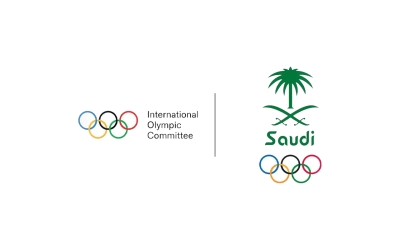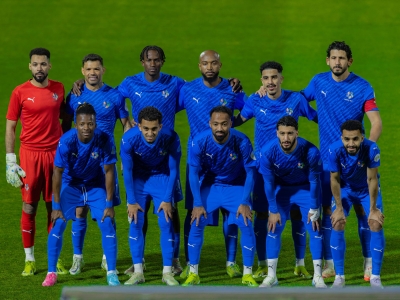
The Kingdom of Saudi Arabia at the Asian Games represents Saudi sport participation in the Asian Olympic Games, organized by the Olympic Council of Asia. These games are a significant international event featuring both summer and winter sports, held alternately every four years and attracting thousands of athletes.
Saudi Arabia at the Asian Olympics Games
The Kingdom first participated in the Asiad (the Asian Olympic Games) in 1978, held in Bangkok, Thailand. Since then, the Kingdom has earned seventy-one medals: twenty-nine gold, fifteen silver, and twenty-seven bronze. The Kingdom secured its first bronze medal in the 1982 New Delhi Games. This was followed by a single silver medal in the 1986 Seoul Games and one bronze medal in the 1990 Beijing Games. In the 1994 Hiroshima Games, the Kingdom achieved nine medals - one gold, three silver, and five bronze. Another nine-medal haul came in the 2002 Busan Games with seven gold, one silver, and one bronze. The 2006 Doha Games saw the Kingdom claim fourteen medals - eight gold and six bronze. The 2010 Guangzhou Games added thirteen medals to its tally - five gold, three silver, and five bronze. In the 2014 Incheon Games, the Kingdom brought home seven medals - three gold, three silver, and one bronze. The 2018 Jakarta Games resulted in six medals- one gold, two silver, and three bronze. In the 2022 Hangzhou Games, the Kingdom secured ten medals - four gold, two silver, and four bronze.
First participation in 1978
The games took place in Bangkok, the capital of Thailand, with a limited number of teams. The Saudi team participated but did not secure any medals.
Second participation in 1982
Held in New Delhi, the capital of India, the Kingdom earned its first Asian medal - a bronze in football where sixteen national teams competed. In the preliminary round (Group One), the Kingdom achieved one victory against Thailand and drew with Syria (one-one) and North Korea (two-two). In the quarter-finals, they defeated the host team, India, one-zero, but fell to Iraq by the same score in the semi-finals. The team clinched third place by defeating North Korea in the bronze medal match.
Third participation in 1986
The event was hosted in Seoul, the capital of South Korea, where the football national team achieved a silver medal. They finished in second place after losing zero-two to the host team, South Korea, in the final. During the group stage, the team triumphed over Malaysia (three-one), Indonesia (two-zero), and Qatar (one-zero). In the quarter-finals, they won against Iraq (ten-nine) in a penalty shootout, followed by a victory over Kuwait (seven-six) in another penalty shootout.
Fourth participation in 1990
The event took place in Beijing, the capital of China, marking the true beginning of Saudi achievements in various games that earned its first medals at the Asian games. Starting with the handball team securing a historic bronze medal that marked the only medal won by the Kingdom in that edition of the Games.
Fifth participation in 1994
The event was held in Hiroshima, Japan, where shooter Saeed al-Mutairi etched his name in history as the first Saudi athlete to win a gold medal at the Asian Games, triumphing in shooting. This edition showcased outstanding performances from Saudi athletes, who brought home nine medals: one gold, three silver, and five bronze. The medals were earned in athletics, shooting, karate, taekwondo, and boxing. In addition to shooter al-Mutairi, several Saudi athletes shone and earned different medals in various competitions. Yousef Hawsawi earned a silver medal in the ninety-one kg weight category, while Jumaan al-Sagheer claimed bronze in the sixty kg weight category. Taekwondo players Mohammed Siddiq and Khaled al-Shamrani won bronze in the fifty-four kg and sixty-four kg categories, respectively. In karate, Abdul Mutalib Barqawi secured silver in the ninety-one kg category, and Sharif Ismail earned bronze in the Kumite sixty-five kg. The athletics national team also made contributions, with Saad al-Asmari winning silver in the three thousand m steeplechase and runner Alyan al-Qahtani claiming bronze in the ten thousand m race.
Sixth participation in 2002
The event took place in Busan, South Korea, marking the best Saudi performance in terms of overall ranking, with the Kingdom finishing eleventh and securing nine medals: seven gold, one silver, and one bronze. The athletics team claimed the majority of the medals, earning eight in total (seven gold and one silver). The journey began with runner Mukhlid al-Otaibi, who earned two gold medals in the ten thousand and five thousand-m races. Runner Jamal al-Saffar followed by clinching gold in the one hundred-m race. Runner Hadi Suwan added another gold with his victory in the four hundred-m hurdles, bringing the total number of gold medals to four. Jumpers Salem al-Ahmadi and Hussein al-Sabee each won gold in the triple jump and long jump, respectively. The four by four hundred-m relay team, consisting of Hamed al-Bishi, Hadi Suwan, Mohammed al-Salihi, and Hamdan al-Bishi, rounded off the gold haul by winning their race. Additionally, Hamdan al-Bishi earned a silver in the four hundred-m race. Khalid al-Matrafi brought the Saudi medal count to an end, winning a bronze in the sixty-two kg weight division of Taekwondo.
Seventh participation in 2006
The event took place in Doha, Qatar, where Saudi athletes continued to shine on the Asian stage, achieving remarkable success in the Asian Games. This marked the most successful participation in Saudi history in terms of medal count, with fourteen medals - eight gold and six bronze - earned across athletics, equestrian, karate, bowling, and volleyball, securing thirteenth place in the overall standings. The Saudi bowling team stood out, winning four medals in total. The brothers Badr and Hassan Al al-Sheikh clinched gold in the doubles event, while Badr also won gold in the singles competition. The trio event saw Badr and Hassan Al al-Sheikh and Faisal al-Juraifani take home the bronze, as well as the team event with their teammates Ahmed al-Hidyan, Youssef Akbar, and Faisal Sakati, who won the bronze in the team competition. In athletics, the Saudi team excelled with seven medals - five gold and two bronze. Runner Yahya Habib secured gold in the one hundred m race, jumper Hussein al-Sabaa triumphed in the long jump, and Hamdan al-Bishi took gold in the four hundred m race. The four by four hundred m relay team, consisting of Ismail al-Sabiani, Hamed al-Bishi, Hamdan al-Bishi, and Mohammed al-Salihi, also earned gold. In the shot put, Sultan al-Hebshi won gold, cementing his status as Asia’s top shot put athlete after an eight-year hiatus. The two bronze medals were earned by Ahmed Fayez in the triple jump and Sultan al-Dawoodi in the discus throw. In equestrian, the Saudi show jumping team claimed gold with riders Prince Abdullah Bin Mutaib, Khaled al-Eid, Kamal Bahamdan, and Abdullah al-Sharbatly. Karate competitor Thamer al-Maliki earned a bronze medal in the fifty-five kg category, and the Saudi volleyball team also secured bronze.
Eighth participation in 2010
The event took place in Guangzhou, China, where Saudi athletes earned a total of thirteen medals: five gold, three silver, and five bronze. The athletics team claimed the largest haul with eight medals, followed by the equestrian team with three, and the karate team with two.
Ninth participation in 2014
The event took place in Incheon, South Korea, where athletes from the Kingdom secured seven medals: three gold, three silver, and one bronze. A historic moment at Incheon Stadium was marked by Saudi athlete Sultan al-Hebshi, the Asian shot put champion and member of the Saudi national athletics team, who claimed the gold medal in his event for the third consecutive time - a record-breaking feat on the Asian continent. In the four hundred m race, runner Yousef Masrahi earned a gold medal, while Abdullah al-Sharbatly secured another gold in the individual show jumping event as part of the Saudi equestrian team. Fahad al-Subaie, representing the Saudi national athletics team, won the silver medal in the two hundred m race. Additionally, the Kingdom's equestrian team - comprising Abdullah al-Sharbatly, Faisal al-Shalan, Abdulrahman al-Rajhi, and Salman al-Maqadi - clinched silver in the team show jumping event. The Saudi national team Karate star Abdullah al-Harbi earned a silver medal in the fifty-five kg weight class. The four by four hundred m relay team, featuring Youssef Masrahi, Ismail al-Sabiani, Ahmed Khairy, and Mohammed al-Bishi, earned a bronze medal in their race. With these achievements, the Kingdom’s athletes placed nineteenth in the overall medal standings for the tournament.
Tenth participation in 2018
The event took place in Jakarta, Indonesia, where the Kingdom secured six medals: one gold, two silver, and three bronze. These achievements placed the Kingdom twenty-fifth among Asian national teams, with medals earned in equestrian sports, shooting, karate, and athletics.
Eleventh participation in 2022
The event took place in Hangzhou, China, marking the Kingdom's third-best performance in the history of the Asian Games in terms of medal achievements. Saudi athletes secured a total of ten medals, comprising four golds, two silvers, and four bronzes, earning the Kingdom nineteenth place in the overall rankings.
Related quizzes
Related articles

